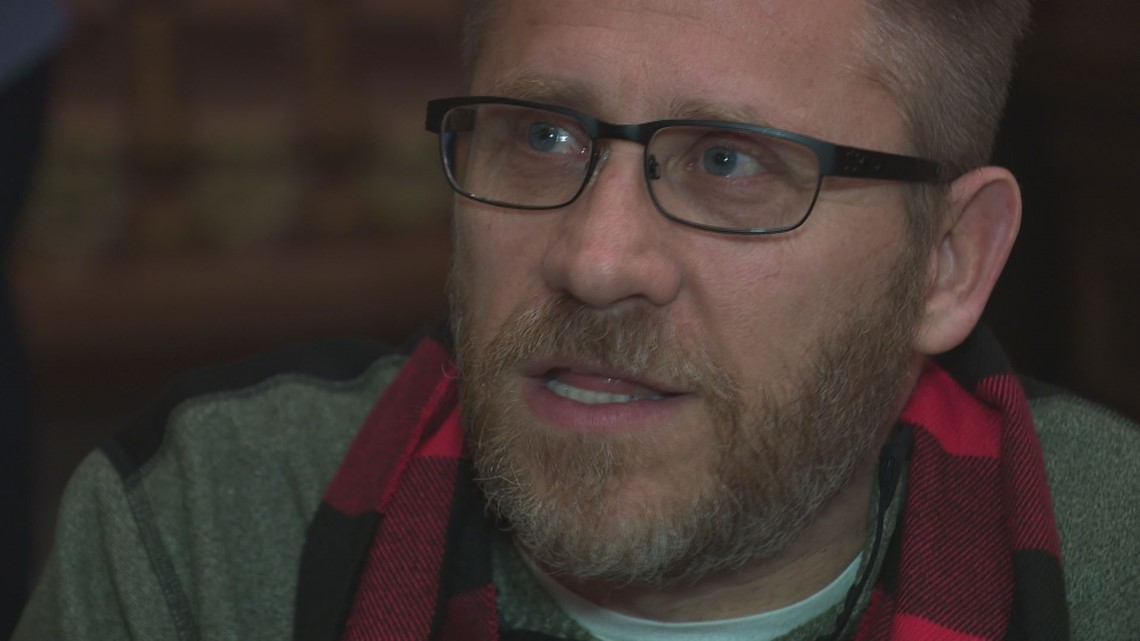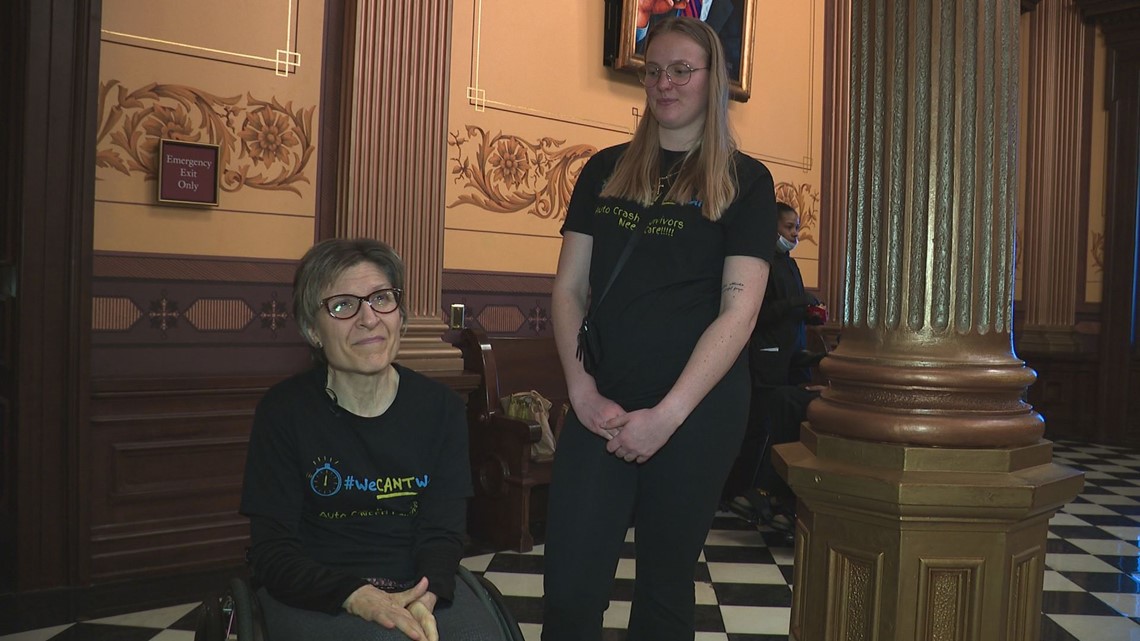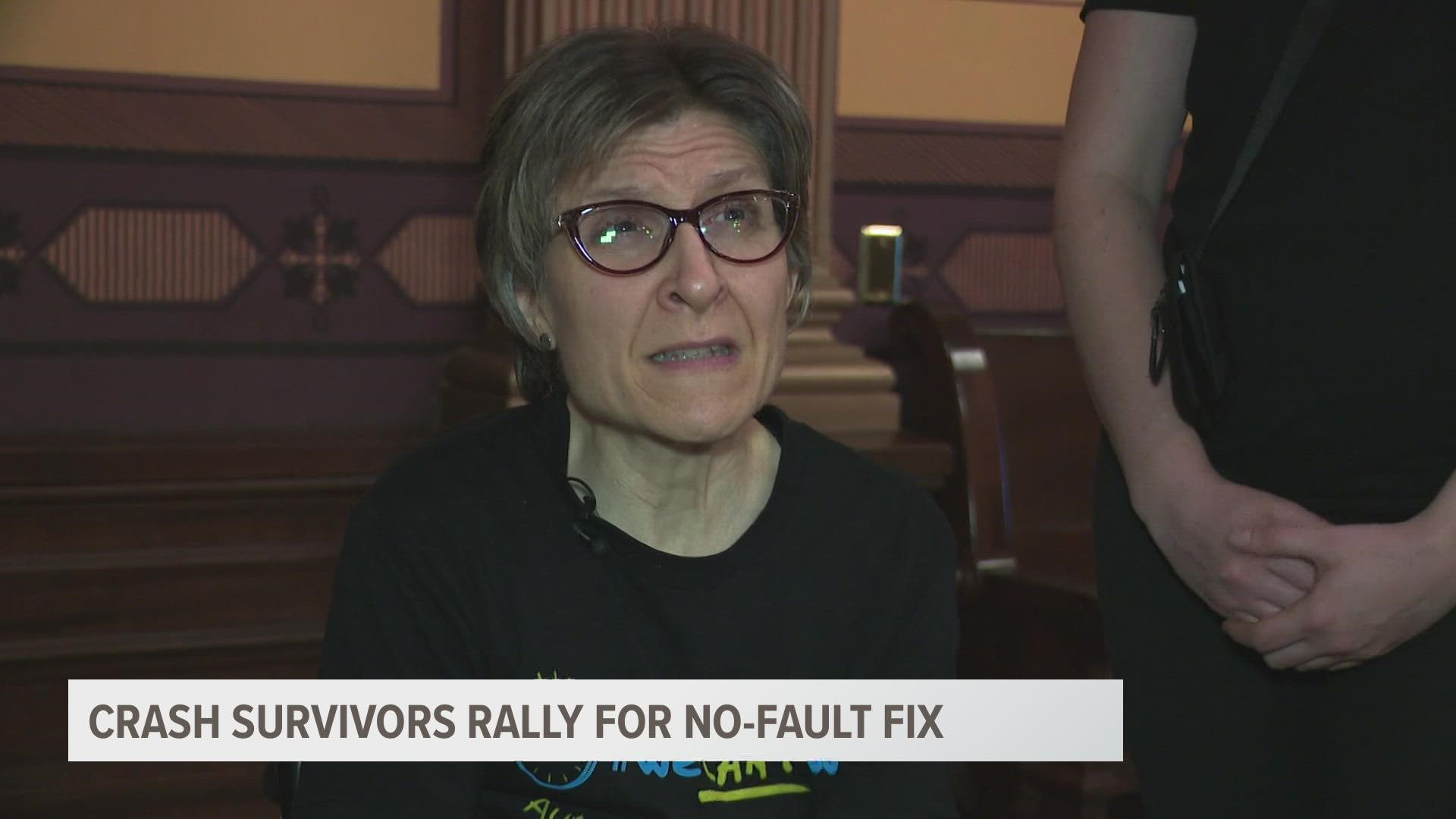LANSING, Mich. — Tuesday, auto crash survivors and advocates rallied in the halls of the Capitol building in Lansing. Their rally cry: "Save our survivors. Fix auto no fault."
Diane Mills-Gutierrez, a survivor of a 2016 auto crash, said "we can't give up."
This comes after last month, House Speaker Jason Wentworth says he's spent the last year looking at proposals to fix to the law made back in 2019 to bring down auto insurance payments.
"They all either move us backward toward the old status quo or put the savings and refund checks for Michigan drivers at risk," he said in a statement. "At this point, it's time to move on."
No-fault auto insurance was originally reformed to save drivers money.
Those calling for a change say the no-fault auto reform had unintended consequences that stripped survivors of their care. Two of the major issues are a fee schedule, reimbursement cap and a limit on paid in-home care hours.
Five bills proposed to fix these issues have stalled on the state house and senate floors.
"It was very frustrating," said Nick Long, CEO of Neurocare Home Health about Wentworth's comments, "I just can’t believe, especially on a bill that has as much support as it has even from his own party, that he's going to say he's not interested in seeing a change this session. It's ridiculous."
Long said his business was severely impacted by the reform. He said for about every hour of care they give, they lose about five dollars, which adds up fast.
"It’s hard for me as a business owner," said Long, "Because I can’t just walk away. These clients would have to go to a hospital or nursing home if we can’t provide care."


Larger facilities are also feeling the pinch from the insurance reimbursement cap for auto crash survivor clients. BHSH, Beaumont Health and Spectrum Health's chief financial officer said in the eight months since the changes were in effect, their payments were cut by $65 million. That is "a huge amount of money for us," he said.
One of the biggest impacts of the reform for Spectrum Health is closing Residential Rehabilitation, a long-term neuro care program.
Other survivors are losing their home caregivers, and having to rely more on family and friends. And yet, the reform puts a cap on family care reimbursement at 56 hours a week.
"So many agencies have gone out of business, they’re falling left and right like flies," said Mills-Gutierrez, "I’m afraid at any day I could get a letter or phone call letting me know they can’t hold on any more because of the 45% cut in reimbursement."
Mills-Gutierrez relies on her caregiver to live her life. Her husband helps as much as he can, but he cannot be her primary caregiver.


Meanwhile, $400 checks have begun being sent out by insurance companies to Michigan drivers. The $400 refunds per vehicle are from a $3 billion surplus in funds from the Michigan Catastrophic Claims Association (MCCA) fund. That fund is used to ensure continued care for catastrophic accident survivors. The surplus is an effect of the no-fault auto insurance reform.
However, those checks, are "a punch in the gut for us," said Mills-Gutierrez.
"That money was taken from the MCCA fund which was designated to provide our care," she said, "That’s money taken away from us."
The MCCA is still maintaining approximately $2 billion in surplus funds to ensure continuity of care for catastrophic accident survivors.
Ralph and Amy Dubey own Therapy Solutions, a neuro-rehab clinic in Petoskey. They say they are fighting battles with insurance companies every day. It has made it "near impossible" to take on auto insurance clients.
"It's devastating," said Dubey, "Because it impacts their independence and progression in life skills. If they don’t have therapies, they won’t get any better."
According to the Michigan Brain Injury Provider Council, 18,000 people in the state rely on funds from the Michigan Catastrophic Claims Agency for their long-term care.
The Brain Injury Association of Michigan is collecting for the Auto No Fault Survivor Fund through its donation page.
The accident survivor advocacy group "We Can't Wait" has also set up a GoFundMe page for people to donate their refunds if they wish. Peggy Campbell, the founder, said the fund would be for continuing to educate the public and legislatures about what has happened for accident survivors.
RELATED VIDEO: No-fault auto reform creates $65 million payment cut for hospital system
►Make it easy to keep up to date with more stories like this. Download the 13 ON YOUR SIDE app now.
Have a news tip? Email news@13onyourside.com, visit our Facebook page or Twitter. Subscribe to our YouTube channel.

